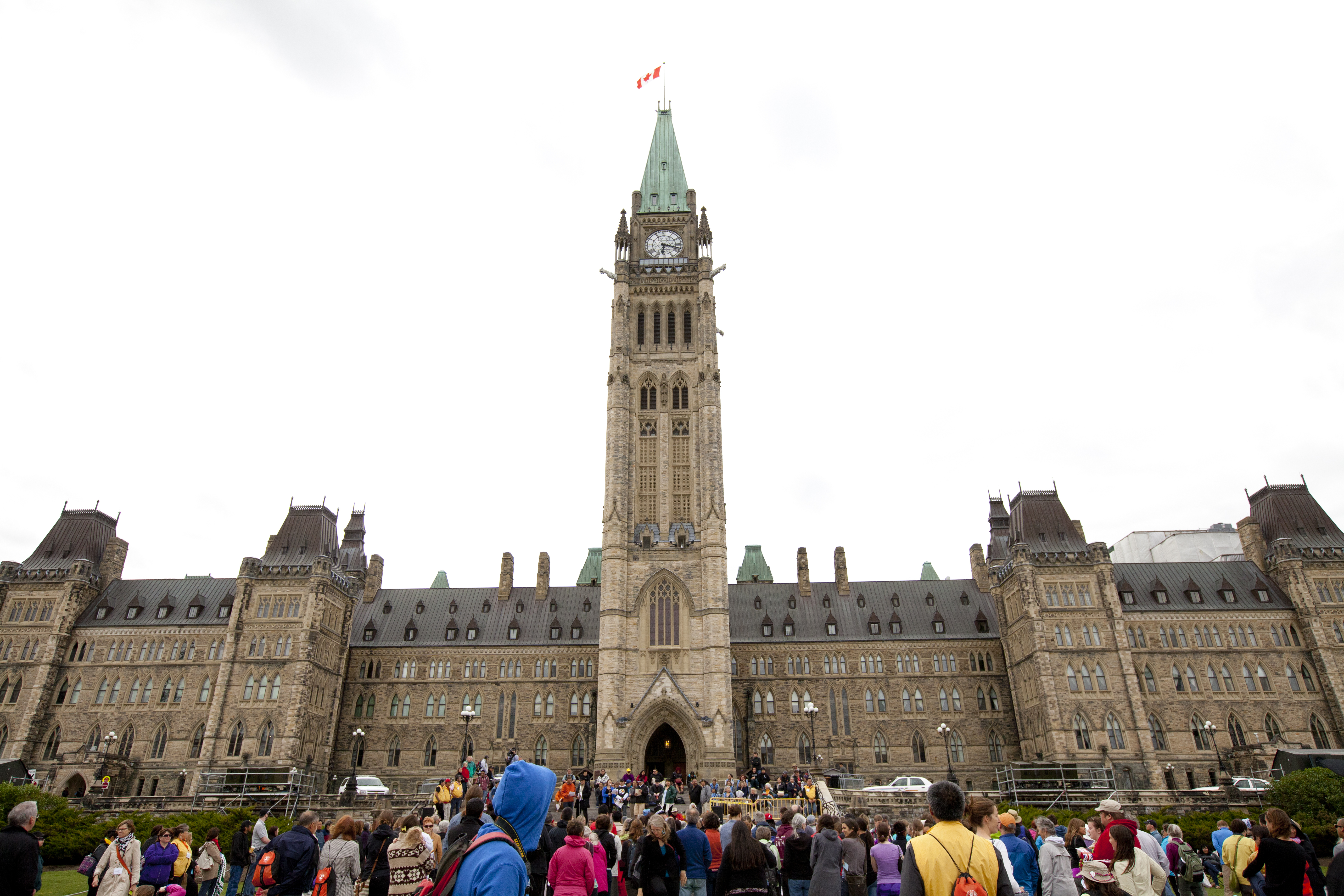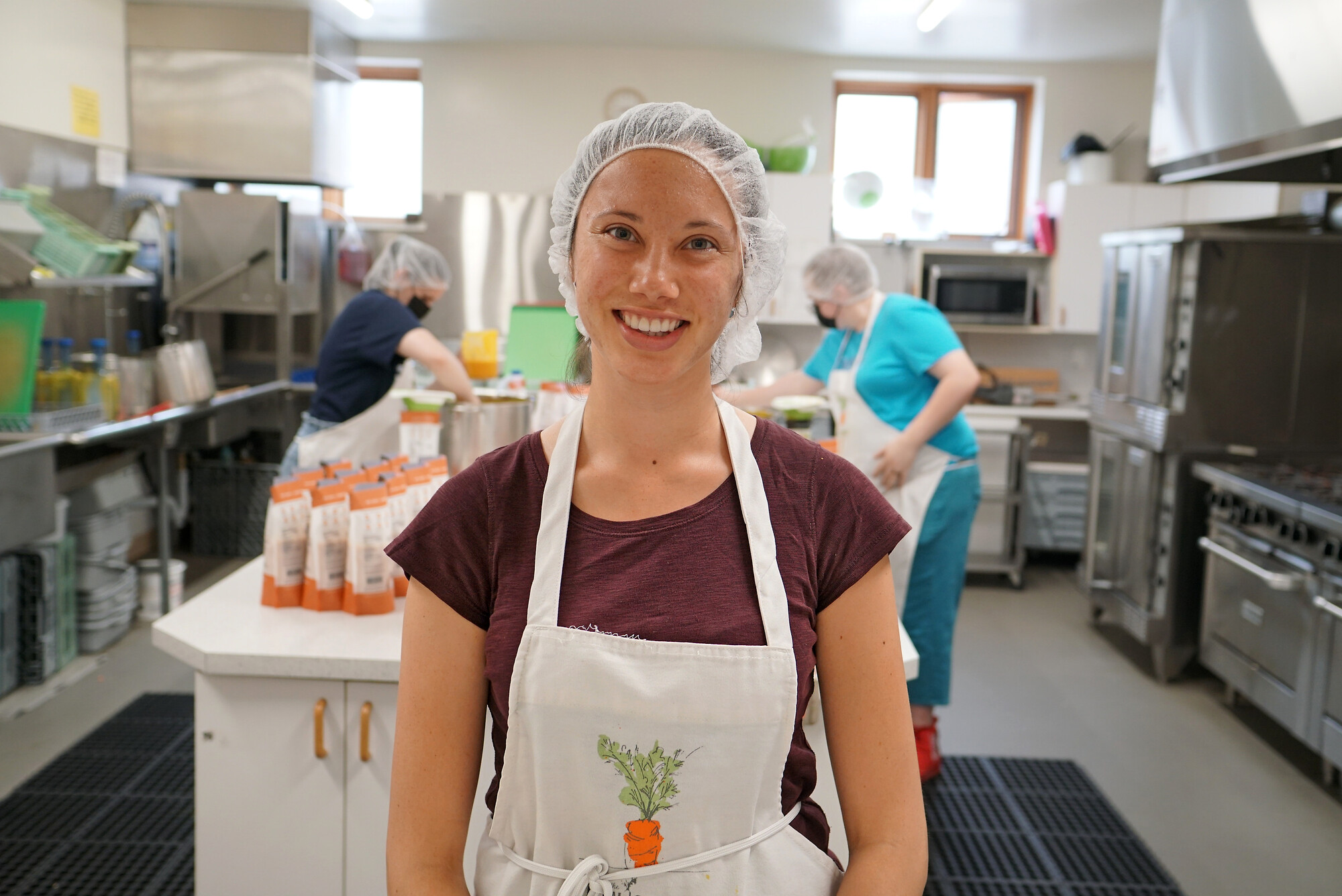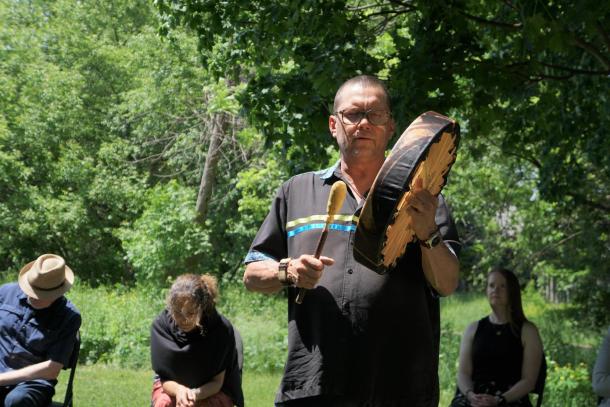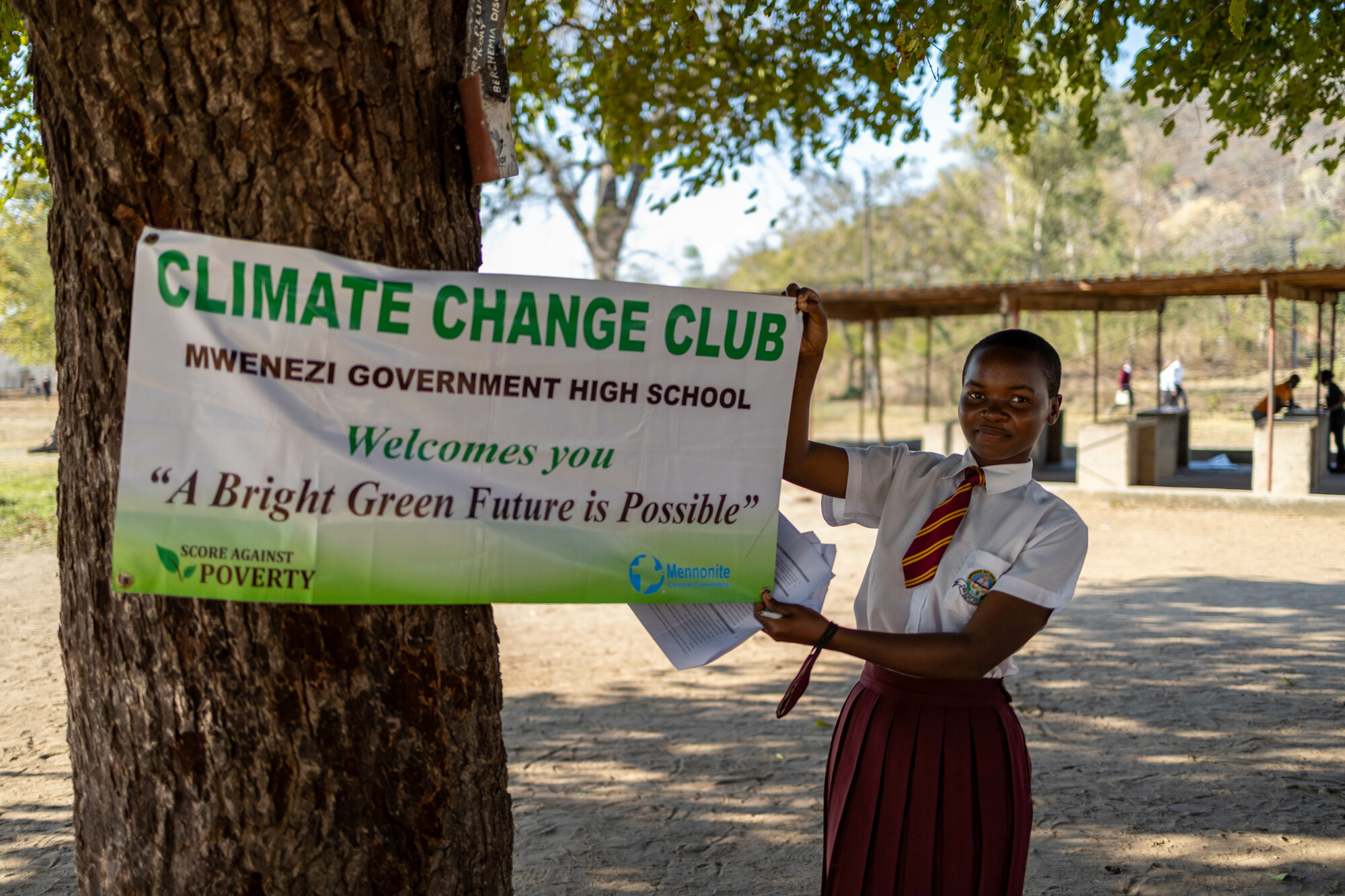Advocacy 2022: a year in review

The beginning of a new year is a good time to reflect on the past year: what we’ve achieved, what we still need to work toward and what we’ve learned. Here are a few highlights from a year of advocacy in Ontario in 2022.
Advocacy by example – the Living Wage movement
How do you get employers to pay a living wage? The first step is to let them know what a living wage is.
MCC has been active in the Canadian Living Wage movement since 2007 and was a founding member of the Ontario Living Wage Network (OLWN) in 2014.
In addition to becoming a certified Living Wage employer, MCC in Ontario has worked alongside other organizations in Ontario and across Canada to calculate hourly living wage rates and build a Living Wage Employer Certification program.
The OLWN’s Employer Certification program recognizes employers who pay all of their direct employees and contracted staff at minimum the living wage rate.

2022 saw some significant milestones for the Living Wage movement in Ontario.
There was an explosion of media coverage during Living Wage Week in November 2022. This is important because Living Wage rates have become a benchmark when media reports on changes to the minimum wage or collective bargaining stories. Also, for the first time, Living Wage rates for the entire province have been calculated.
When the 2022 rates were released during Living Wage Week in early November, employers from the newly-covered regions immediately began applying for Living Wage certification.
There are currently 530 certified Living Wage employers in Ontario. When employers become certified, they commit to increase wages to the new Living Wage rate within six months of the updated calculations. More than 30,800 employees benefit from working for those Living Wage employers.
2022 saw the certification of the City of St. Catharines and the Regional Municipality of Waterloo as Living Wage employers – joining Cambridge and Kingston and Huron County as Ontario municipalities who pay all of their workers a living wage. The City of Toronto uses the Living Wage as a criterion for businesses seeking contracts with the city.
The promotion and adoption of the Living Wage is a different way of doing advocacy. Living Wage employers – including many among MCC’s support community – lead the way by explaining the benefits of paying a living wage to their peers and demonstrating that paying a living wage makes sense.
Even if you’re not a business owner, you can advocate for fair wages by supporting Living Wage businesses. Go here for a complete list of certified Living Wage employers.
We asked for your support in advocating to our federal government to continue funding of Circles of Support and Accountability. Although the government funding has not come through as of this writing, we are excited to announce that CoSA will continue for at least the short term with the receipt of a one-time non-governmental grant.
This grant will provide us both time and opportunity to consider how we can be more strategic and diversify our work with individuals either at risk or involved within the criminal justice system.
MCC’s Restorative Justice program currently has 36 active core members in Circles, and we have another 38 that are benefitting in other types of social inclusion programs. These 38 non-Circle members are “graduates” or alumni of the Circle who may check in from time to time or actively participate in one of our many different opportunities like Trivia Night online, Dismas Fellowship (now transitioning to its own independently-run group), Living with Purpose group, Photo and Video Club Group, Bible Study and Games group. As well, new people are continuously being interviewed for suitability with the CoSA program.
We are hopeful that ongoing meetings and financial requests from the federal and provincial government will provide a way to support Circles of Support and Accountability (CoSA) Circles.
Our RJ team is currently in the process of developing a comprehensive advocacy campaign to continue funding for CoSA which is line with the federal government’s stated goals of reducing recidivism in collaboration with non-profit and faith-based groups like MCC.
Truth and Reconciliation, Anti-racism and a more inclusive MCC
At MCC, our advocacy also faced inward as we brought training and resources to our own staff. On September 30, the National Day for Truth and Reconciliation, all MCC staff province-wide spent the day learning, discussing and challenging ourselves to look deeper into the colonial history and present of this land we call Canada and the ways in which we participants in it.

MCC Ontario’s leadership team had the opportunity to learn on site at Crow Shield Lodge with Clarence Cachagee. A wide variety of resources such as books, podcasts, documentaries and articles were available for self-directed learning with facilitated check-ins at the beginning and end of the day. This was a sobering and rich time of growth for all.
All staff also participated in anti-racism training with the theme of “Race through the eyes of faith.” This training provided opportunities for learning and reflecting as we reimagined our organizational vision and values to contribute to an anti-racist, inclusive culture. Our goals are:
- To see MCC create a safe space for staff, leaders and church members who perceive the value of diversity, inclusion and equity
- To practice values of inclusion and anti-racism among ourselves as an inclusive and anti-racist organization
- To have an integrated, strategic and intentional approach to execute Diversity, Inclusion, Equity & Belonging activities and initiatives so that everyone feels valued and respected with a sense of belonging that will carry over into MCC’s work with the community.
Climate Action
MCC’s newest national advocacy campaign, while still in development, has already hit the ground running with some preliminary work done by MCC's Canadian Advocacy Network member Ken Ogasawara in holding workshops at churches and at MCC’s Peace Conference.

For years, MCC has heard from our partners around the world that climate change is affecting their livelihoods and communities. While MCC continues to support our partners in adapting to the effects of climate change, we also recognize the moral obligation that high-carbon-emitting countries like Canada have in doing our part to drastically cut carbon emissions.
Canada has already committed to reducing emissions by 40% by 2030, but a fair-share approach, considering Canada’s wealth and per capita emissions, would be 60%. Use our handy letter-writing tool to let our government know that you support a stronger mitigation response from Canada.
You can also demand our government put more funding into adaptation responses. These petitions are also supported by For the Love of Creation (FLC), the Canadian Coalition on Climate Change and Development (C4D) and Canadian Foodgrains Bank (CFGB), all bodies in which MCC is a member.
If you have a class, book club, church group or any other gathering that would like to learn more about advocating for climate justice, please contact Ken Ogasawara at kenogasawara [at] mcco [dot] ca to explore having Ken come to lead a workshop or discussion.
Advocacy is ultimately about creating positive, deep change in your community, your city, your country. Whether you prefer to do this work through supporting Living Wage employers or by writing to your MP, a key component of this work is that it must be done together. Whatever action you take, share it with a friend or family member and let others know you care.

